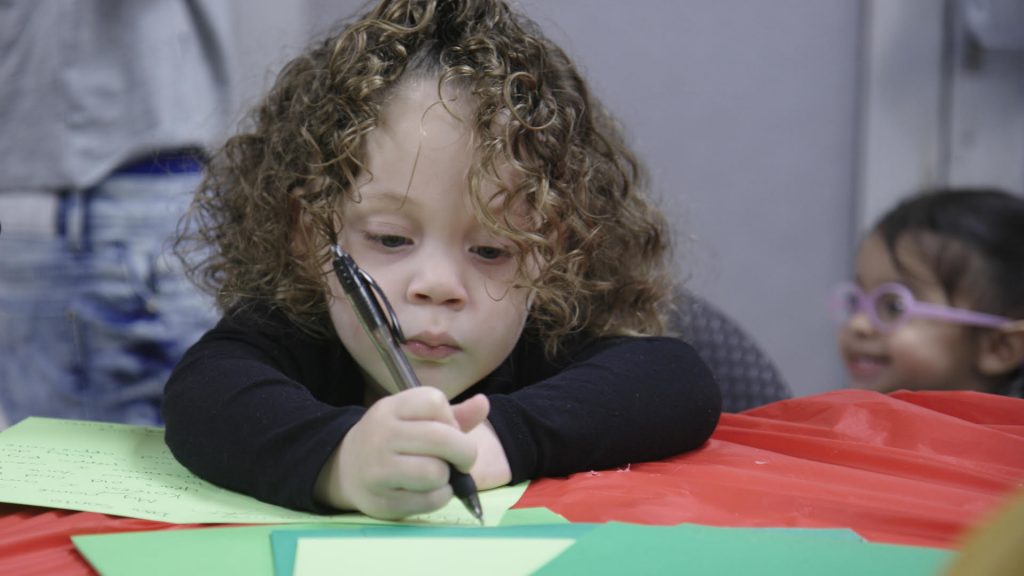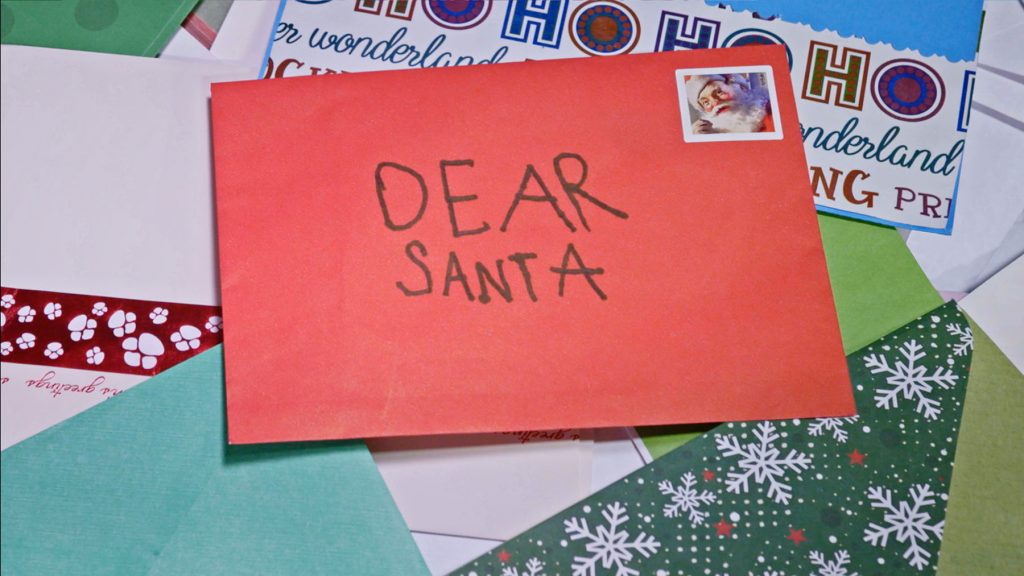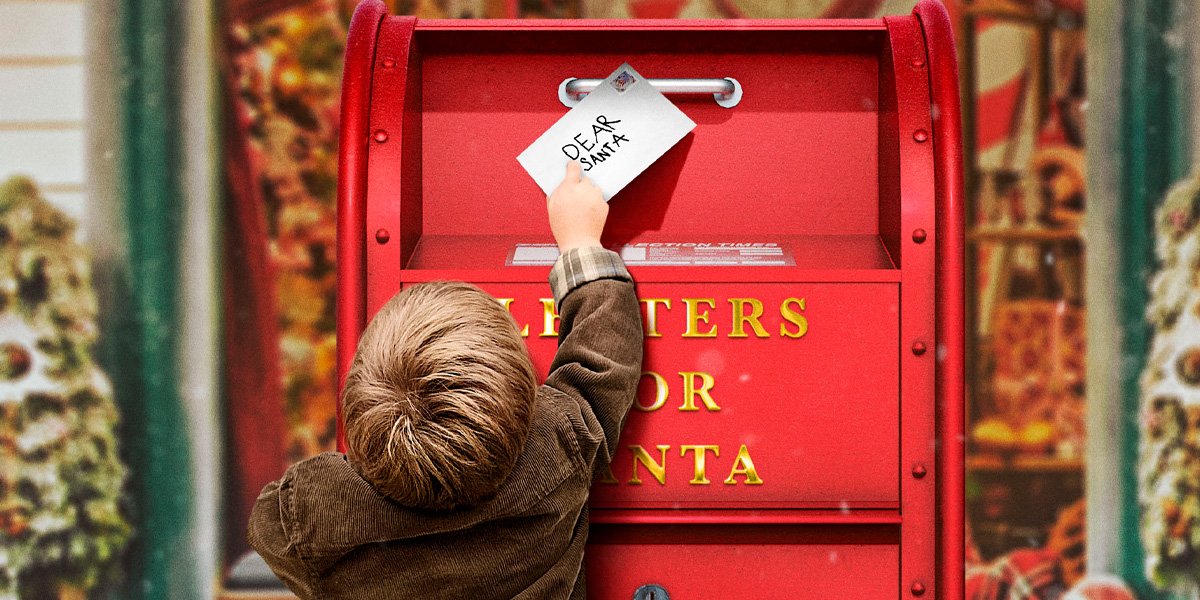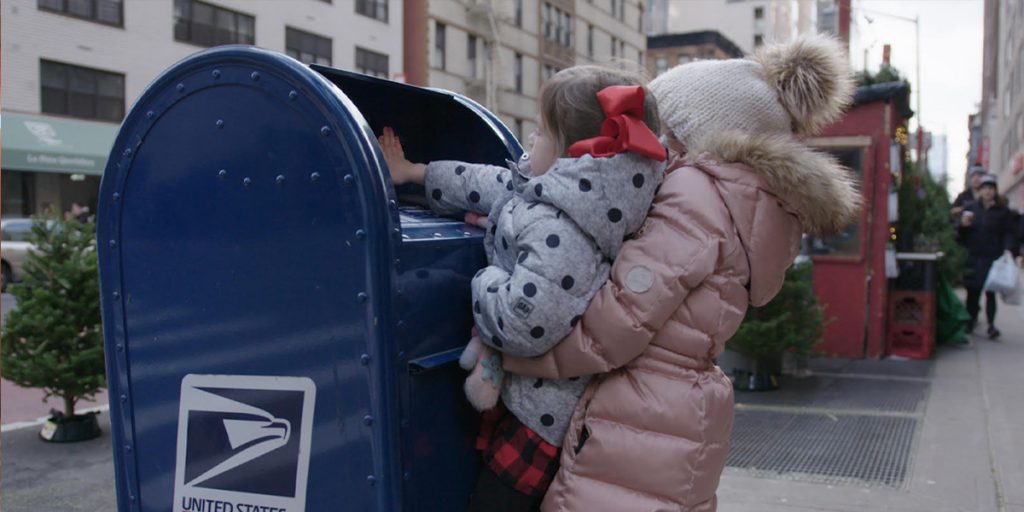In an interview with Dear Santa’s director Dana Nachman, we learn why this is the documentary our divisive world so desperately needs right now.
In the documentary Dear Santa, director Dana Nachman shares the story of the U.S. Postal Service’s “Operation Santa,” an organization that allows everyday Americans the opportunity to “adopt” letters to Santa from children across the country and deliver gifts to families in need throughout the holiday season. Nachman’s empathetic exploration of this program fills viewers with hope for humanity in a year of pain and peril, and the documentary as a whole reminds us of the capability of compassion and charity to bring even the most contrasting of individuals together. In the following interview, we were able to speak with Nachman about her admiration for the aims of “Operation Santa” and her purpose for pursuing this project.
Developing Dear Santa: How Dana Nachman First Heard About the History of the “Operation Santa”
Despite all of the good it does for families across the country, many are still unaware of the U.S. Postal Service’s work with the “Operation Santa” program. When did you personally first learn about “Operation Santa”?
I know! I had never heard of it either until about eight years ago [when] my mom actually bought me a book about “Operation Santa.” Every year around Christmas time I would read this book to my kids and I would think, “what an amazing book” – but I thought a film about it would be even more amazing.
“Operation Santa” is clearly a revolutionary effort in community outreach and assistance, and this is easily apparent in your documentary’s depiction of the program. What was it specifically about the “Operation Santa” that compelled you to focus on it as the subject of a documentary?
I loved the backbone of the story about the magic of childhood and the hopes and dreams of kids (and some adults too). The thought of being able to lean into the fantasy of Christmas made me very excited. And then, to be able to focus on all of the human “elves” that spend the time to make these dreams come true also was exciting to me, all while understanding that much of the time, when we do things for others, we are the ones that get the most out of it! To make a film that focuses on this – one of life’s biggest hacks – was thrilling to me!

Drawing Attention to the Achievements of “Operation Santa”: Favorite Moments from Filming
As you discovered more about the ins and outs of “Operation Santa” via interviews and first-hand experiences, what was the most interesting thing you learned during your research and filming for Dear Santa?
I think what surprised me the most was all of the letters that come in where children are asking for things for other people. That really slayed me! To put yourself in the position of these children where they have one shot at reaching Santa and they ask for something for their mom or their grandma or their sister or brother. That really was something. And it wasn’t just one or two letters – there were hundreds upon hundreds of letters like that!
Throughout the documentary, you capture many scenes of indescribable joy as children receive their “surprise” gifts from members of “Operation Santa.” What was your favorite moment that you caught on camera, and why?
How can I choose [when] they are all so amazing? I love so many of them; the little boy who saw kids riding in limos in movies and shows but thought that would never be for him because they weren’t well off – well, you can imagine what we captured on Christmas Day with him. And of course, the little boy who got a bunny and the one family that got a puppy! Honestly, when I was little, if I got a puppy, I probably would have died of happiness!
I really loved one letter that actually didn’t make the film. It was from a little boy who lived in the Bronx who was asking for a violin and a book to learn how to play violin. I mean, what an awesome Santa letter! I was obsessed with putting this story in the film. USPS cannot give out personal [identification] information to anyone, so if I was interested in a letter, I would let USPS know and they would send out an express mail letter to the parents of the letter writer saying that their child’s letter had caught the attention of a filmmaker. They provided my email and phone number and if they were interested in hearing about what I was doing, they could contact me. The guardian of this boy did call me and said that she thought it would be great for him to participate, but she let me know that she was the foster mother and she had to get approval from the foster care agency to do this kind of thing. Sadly, the agency said no. I got their number and tried to be persuasive but didn’t succeed. The good news is that I followed the letter and did see that an adopter elf did grab this letter and he got his violin and his book, and I think he also got a lesson! I didn’t get to have the sweet sounds of the violin in my film, but the important thing is this boy is on his way, and I expect to find him one day playing in Carnegie Hall.

The Motives Behind Making Dear Santa and the Lessons Learned Along the Way
It’s hard not to feel overcome by optimism when seeing all the happiness that “Operation Santa” provides for families across America. What lessons did you personally learn about humanity and “giving back” while you worked on this documentary?
That’s so great that you felt that way after seeing the film! That makes me happy! I am actually a very optimistic person, as you might gather after spending time with my work. I like to surround myself with likeminded people both in my work and my personal life. I don’t like to live in the space of negativity or victimization for too long, so stories like this and the characters inside the story just make sense to me, and I like to spend my time amplifying what they do whenever possible. Another funny tidbit as it pertains to this film is that I am Jewish, and in the Jewish faith there is a tenant called “tikkun olam,” which calls on people to repair the world. I tend to gravitate toward stories as a filmmaker that showcase people repairing the world.
Above all else, what do you want people to remember when they walk away from Dear Santa? What was your purpose for putting this piece of art into the world?
Obviously when we set out to make this film last fall, we had no idea what 2020 would bring, but even so, we knew that our nation was deeply divided and only getting more so by the day. I wanted to showcase an America where people from all over come together to help one another. I’ve had a hard time feeling patriotic over the last several years, and while I was traveling around the country shooting Dear Santa, I realized that “Operation Santa” signified the best of our country. I hope people come away from Dear Santa feeling a bit more hopeful about our country and our path forward.

 loudandclearreviews.com
loudandclearreviews.comDear Santa was released in US cinemas and on VOD on December 4, 2020. Read our review of Dear Santa.

